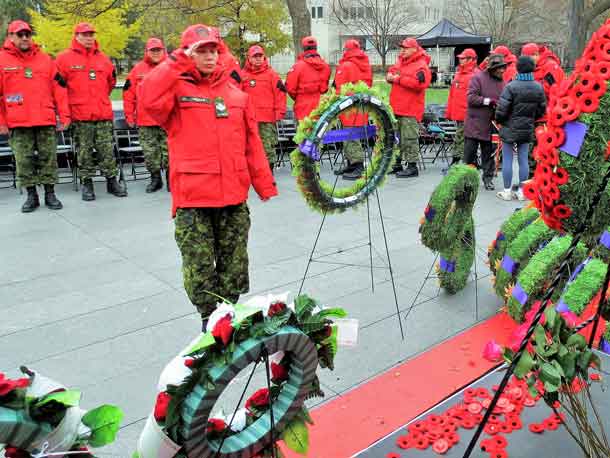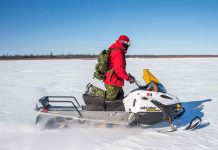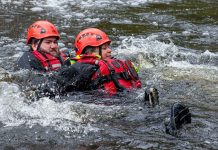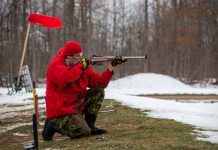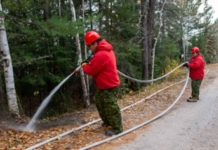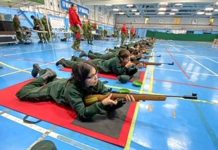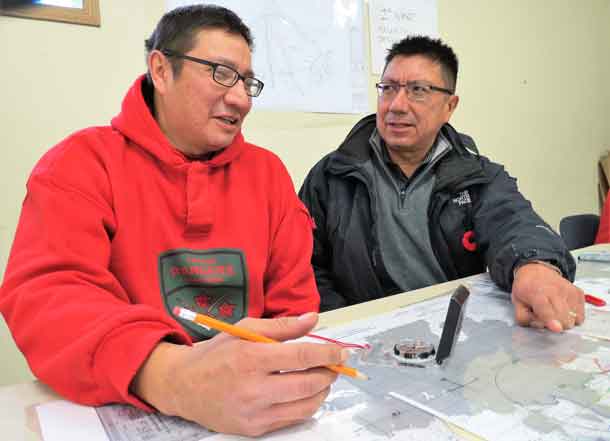
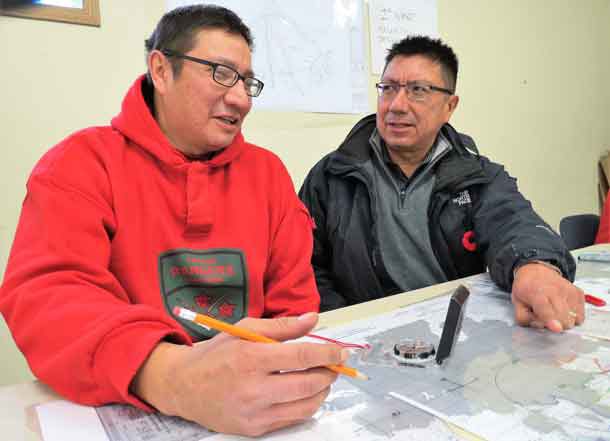
By Peter Moon
THUNDER BAY – The Canadian Rangers are completing a busy year in which they have shown they are an indispensable community organization for many of the First Nations of the Far North of Ontario, according to their commanding officer.
“Our goal is to make the Canadian Rangers an indispensable community organization,” said Lieutenant-Colonel Matthew Richardson, commanding officer of the 3rd Canadian Ranger Patrol Group, “and that became a very real reality on many occasions this year.
“When many communities needed help they thought of us. They called on us for help and we responded. This has been a banner year for us”
Grand Chief Alvin Fiddler of Nishnawbe-Aski Nation, which represents 49 First Nations in Northern Ontario, said the Rangers continue to demonstrate the value of their growing presence in the North.
“This year,” he said, “the communities of Wapekeka and Nibinamik were thrown into crisis due to elevated rates of suicide and suicide attempts, especially by youth. The Rangers were quick to mobilize and provided these communities with a sense of security.
“This response was over and above their response to a similar crisis in Attawapiskat last year, and the growing number of ground operations and evacuation relief efforts the Rangers assist with each year… We value our relationship with the Canadian Rangers and support the expansion of patrols in Nibinamik First Nation and across NAN territory…Their presence in our communities is saving lives through search and rescue operations and training in outdoor safety and survival.”
Canadian Rangers are part-time army reservists and there are 550 in 24 First Nations in Northern Ontario. They are 98 percent Indigenous and most are Ojibway, Oji-Cree, or Cree. Four out of every 10 Rangers is a woman.
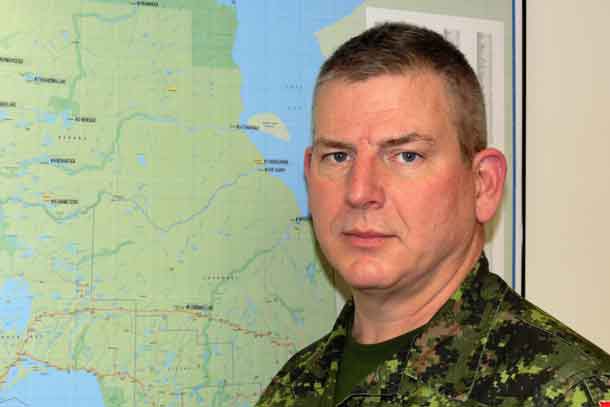
credit: Sergeant Peter Moon, Canadian Rangers
“This has been a banner year for us,” Colonel Richardson said. ‘There are so many things we have done for the people we serve.”
Rangers were called out for active duty on 90 days to respond to emergencies during the year, “that means that for almost a quarter of the year we were activated,” he said.
In July and August, Rangers from several communities spent several weeks in the remote First Nations of Wapekeka and Nibinamik, patrolling around the clock to prevent children from committing suicide following a number of suicides and attempted suicides. “We got a unique call for help from the communities,” Colonel Richardson said, “and we responded. Nobody died while we were there and I’m sure we saved lives. We provided a range of activities for the kids as well as patrolling.”
Rangers from six First Nations spent 18 days in April monitoring the Albany River and helping to evacuate 1,500 residents of Kashechewan when the community was threatened with flooding during the spring ice break up.
Rangers conducted search and rescue operations on 25 occasions during the year. Ten of the searches resulted in the saving of 15 lives. The other searches were aborted when the missing people turned up unharmed and not in need of help. The Rangers work in partnership and train with the Ontario Provincial Police.
In November many Rangers responded as trained volunteers to a call for help from the Cree community of Waskaganish in Quebec when four hunters went missing. The Canadian Army recognized the value of their involvement in the search by placing them on duty retroactively and paying them for their service.
The Junior Canadian Rangers is a culturally appropriate program run by the Rangers for boys and girls aged 12 to 18 in 20 First Nations. It stresses safety on the land and water and in personal lifestyles. “It is a hugely successful program,” Colonel Richardson said. “There are now more than 1,000 Junior Ranger in Northern Ontario and it continues to grow.”
In July, 143 Junior Rangers attended Camp Loon, an annual event that provides eight days of specialized leadership training for selected Junior Rangers.
“We are especially encouraged with the growth of the Junior Ranger program, which is having a positive influence on our youth,” Grand Chief Fiddler said.
The Rangers are supported in the North by a full-time staff of 38 military personnel at the Rangers’ headquarters for Ontario at Canadian Forces Base Borden, near Barrie. “It consists of a relatively small number of army instructors, who go North to provide the Rangers with training, and support staff who look after pay, equipment, and everything else the Rangers need,” Colonel Richardson said. ”The staff work long hours and do a fantastic job supporting what the Rangers do for the people of Northern Ontario.”
(Sergeant Peter Moon is the public affairs ranger for the 3rd Canadian Ranger Patrol Group at Canadian Forces Base Borden.)

